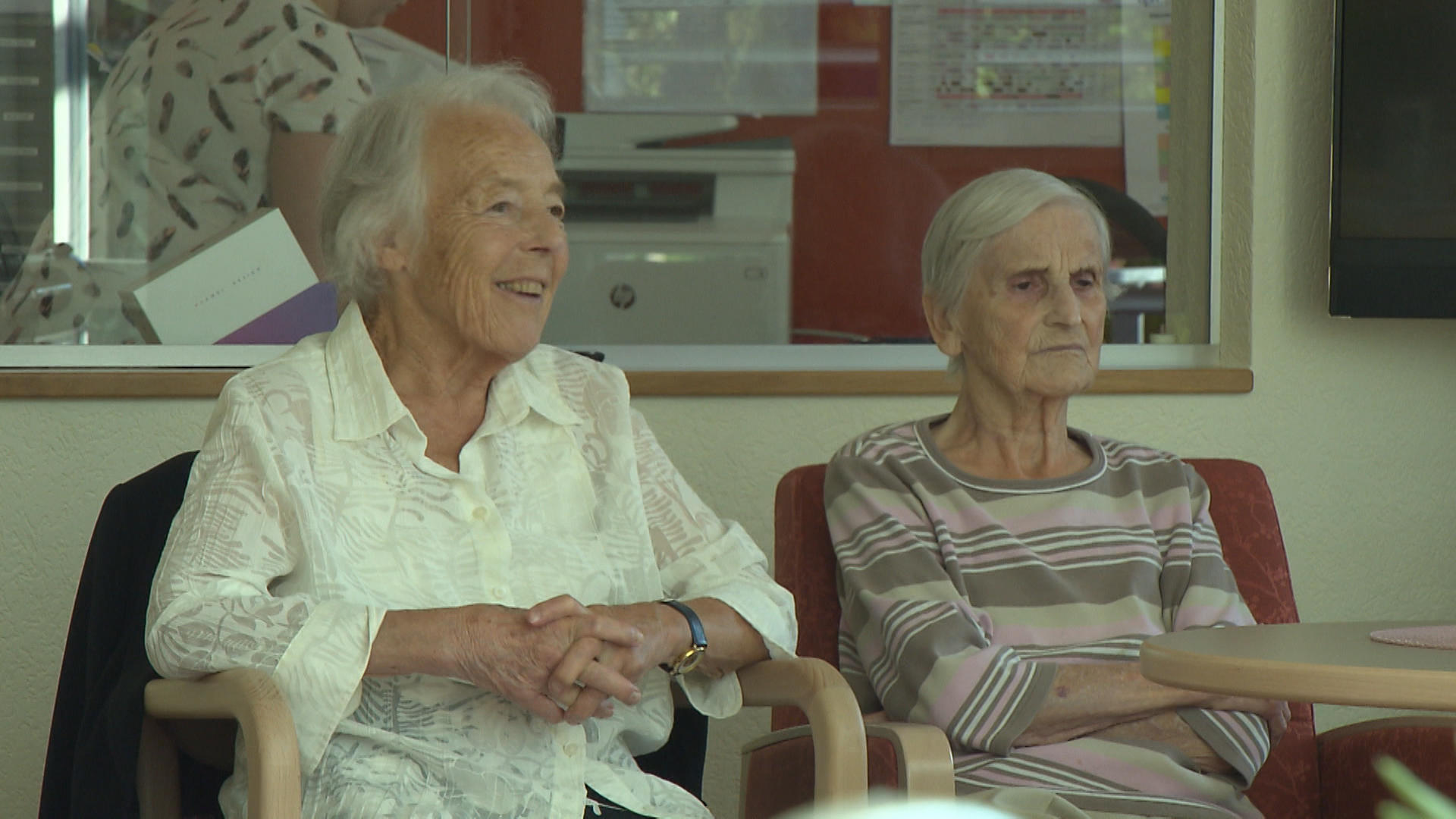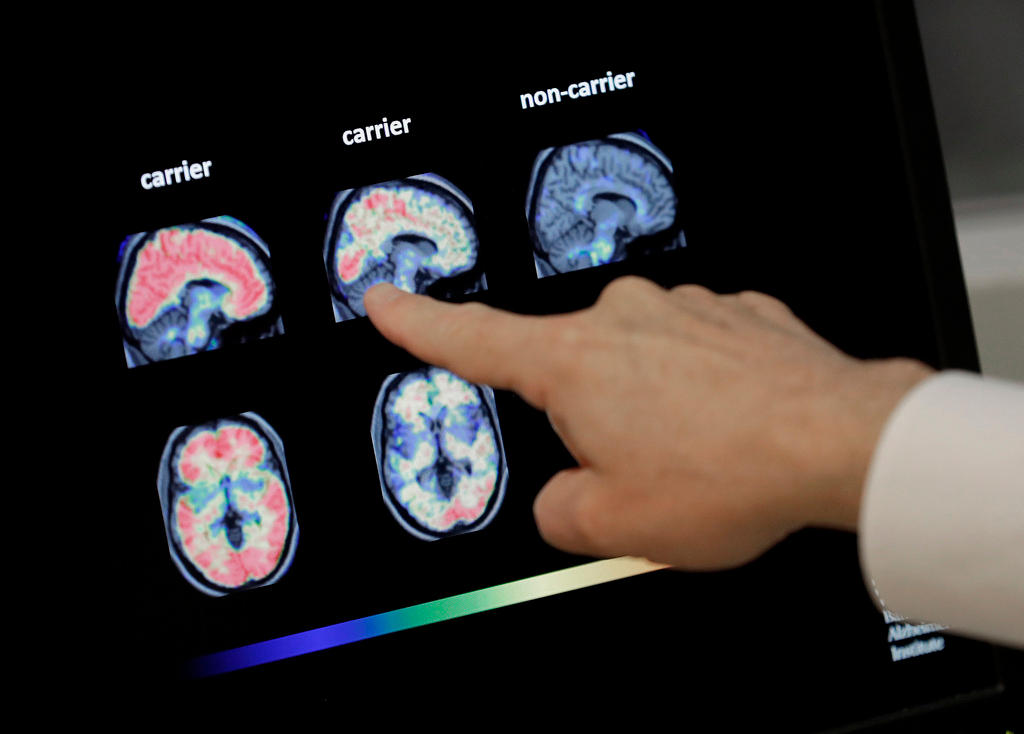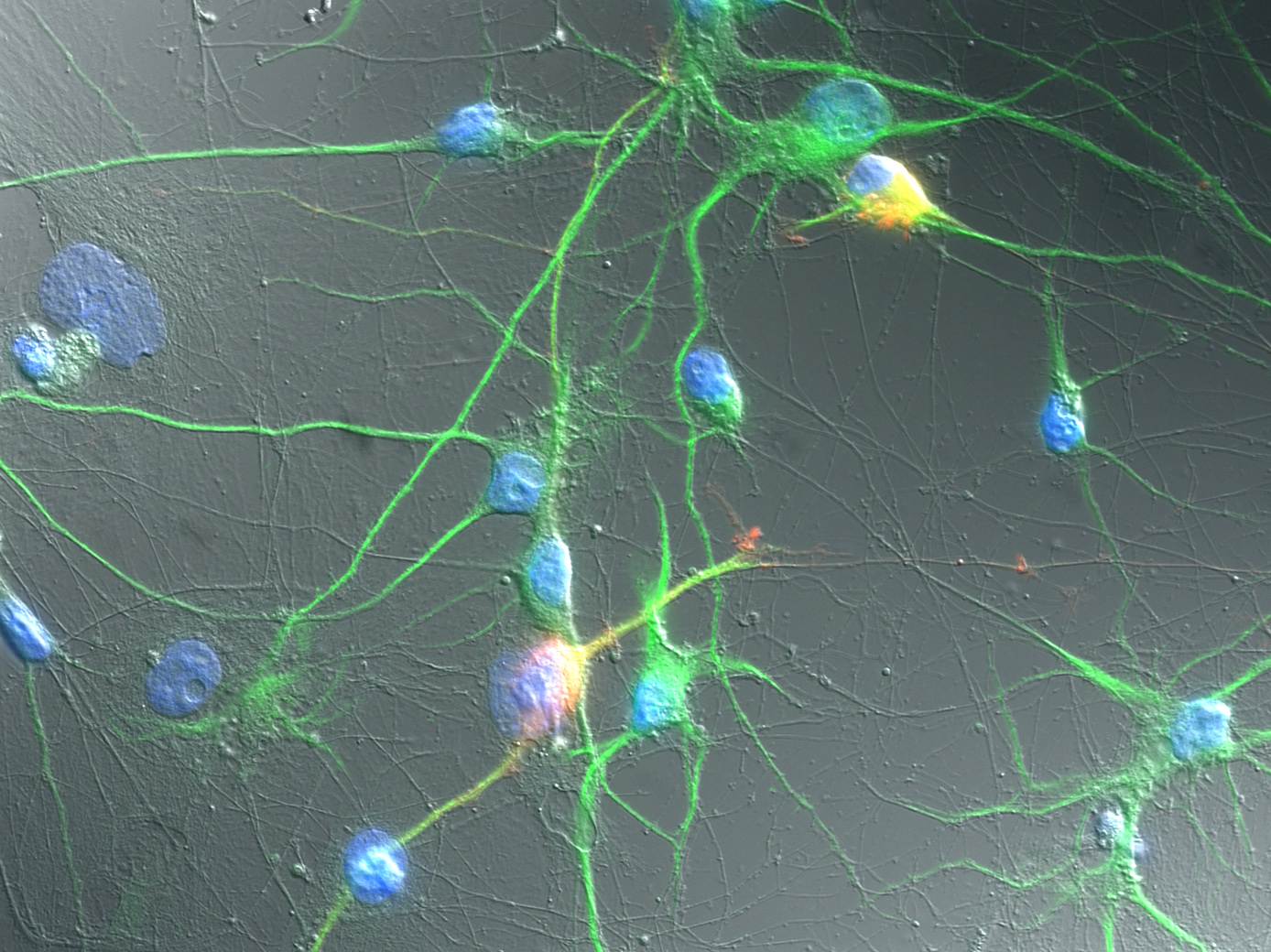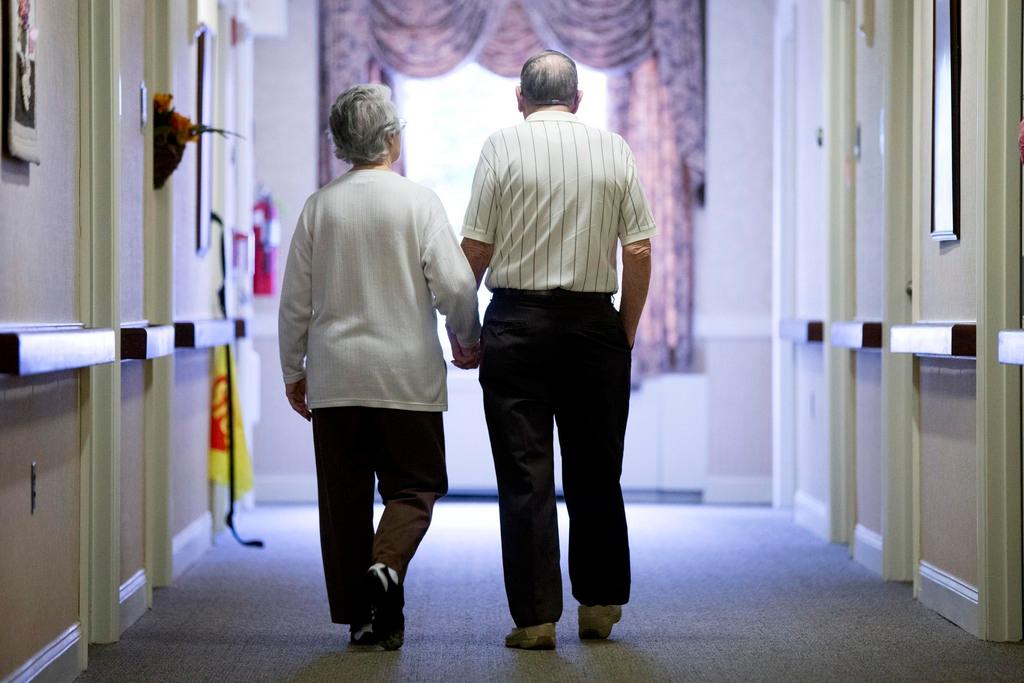Swiss medical community stands up for Alzheimer patients

Leading Swiss medical institutions are calling for Alzheimer diagnosis and treatment to be reimbursed by compulsory health care institutions.
Fifteen institutions issued a statement to that effect on Sunday in a bid to counter prevailing scepticism about the existence and treatability of the disease, which affects a growing number of Swiss.
Alzheimer Switzerland and the Memory Center of Geneva University Hospital (HUG) are among the organisations that took this position, in line with the 2014-2019 national strategy on dementia.
Dementia, according to these institutions, is clearly a disease that is not part of the normal ageing process. The causes are mainly neurodegenerative or vascular.
Patients, they say, have the right to receive the best treatment.
“This stance, which is based on long consideration, was necessary for the enormous responsibility that we have towards our patients,” Giovanni Frisoni, director of the HUG Memory Center, told Swiss news agency Keystone-SDA.
Search for therapies
It is also a question of responding to “deniers” for whom Alzheimer’s is not a disease.
“This minority makes a lot of noise but does not contribute in any way to the reflection on the disease and the search for therapies,” Frisoni says.
In France, he notes, the costs of dementia drugs have not been reimbursed by health insurance since last year. The products Aricept, Ebixa, Exelon and Reminyl are the only ones approved and reimbursed in Switzerland.
“Without them there is no alternative,” Frisoni stresses.
Demographic changes
Although these drugs do not treat Alzheimer’s, they have nevertheless proved their effectiveness. They temporarily improve the condition of patients or stabilise cognitive symptoms for up to 18 months, according to the joint statement.
Early diagnosis and treatment also improve people’s autonomy, allowing them to live longer at home. The combination of pharmacological and non-pharmacological therapeutic approaches is necessary and is emphasised in the position paper.
Currently 151,000 people have dementia in Switzerland. Due to demographic changes, the medical community estimates 300,000 people will be affected by dementia in 2040.

More
A special kind of home for people with dementia

In compliance with the JTI standards
More: SWI swissinfo.ch certified by the Journalism Trust Initiative



You can find an overview of ongoing debates with our journalists here. Please join us!
If you want to start a conversation about a topic raised in this article or want to report factual errors, email us at english@swissinfo.ch.